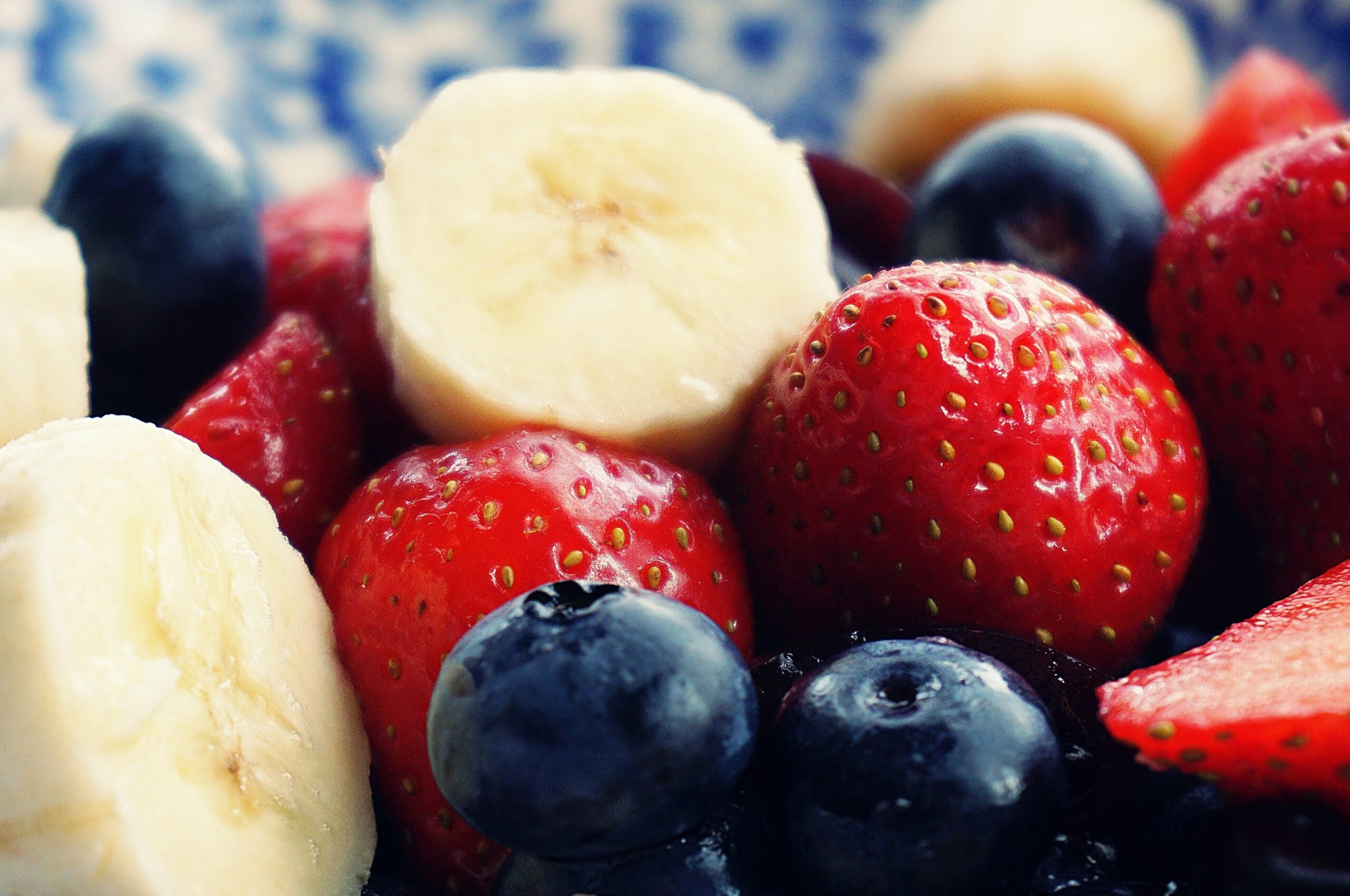Table of Contents
I. Introduction
Antioxidants are powerful compounds that play an essential role in keeping our bodies healthy. They can fight inflammation, slow down the aging process, and help protect against chronic diseases such as cancer and heart disease. In this article, we’ll explore the different types of antioxidants, the key benefits they offer, and how to make sure you’re getting enough of them in your diet. We’ll also discuss other ways to benefit from antioxidants, such as taking supplements or using antioxidant-rich skincare products. By the end of this article, you’ll have a comprehensive understanding of the power of antioxidants and how to maximize their benefits.
Brief overview of the importance of antioxidants in maintaining health
Antioxidants are some of the most powerful and beneficial compounds for promoting health and wellbeing. They are known to counter the effects of free radicals in our bodies, which are highly reactive chemical compounds generated by metabolic processes and environmental factors such as ultraviolet radiation. These reactive substances can cause oxidative damage and put a person at greater risk of disease.
Antioxidants, on the other hand, are substances that can quench the activity of these free radicals and reduce the damage caused by them. They are found naturally in many fruits, vegetables and other plant foods such as nuts, grains and legumes. Some of the most commonly known antioxidants are vitamins A, C, and E, and flavonoids, which are polyphenols found in various plant-based foods.
By consuming a diet rich in antioxidants, a person can experience multiple benefits. Research shows that antioxidants can protect against a range of conditions such as heart disease, cancer, Alzheimer’s disease, and other neurodegenerative diseases. They can also help to slow the aging process, protect against inflammation and reduce the risk of developing chronic diseases like diabetes and obesity.
Studies have shown that antioxidants can also strengthen the immune system and improve overall health, as well as reduce fatigue and stress. Antioxidants can also help to protect against environmental toxins, reduce the risk of developing certain types of cancer, and protect against liver damage caused by alcohol consumption.
Ultimately, antioxidants are essential for maintaining good health and keeping the body in balance. By incorporating a variety of antioxidant-rich foods into your diet, you can ensure you are getting all the protection and benefits you need.
Explanation of what antioxidants are
In the last few years, the importance of antioxidants has become increasingly clear. Antioxidants are powerful compounds that can help protect our cells from oxidative damage caused by unstable molecules called free radicals. They are found naturally in fruits, vegetables, proteins, and grains, as well as in supplements and topical applications.
The term “antioxidant” refers to the ability of a compound to neutralize the effects of free radicals. Free radicals are unstable molecules created as a byproduct of normal bodily functions, environmental toxins, and other stressors. When exposed to oxygen, these molecules can react with the body’s cells, causing oxidative damage. This damage can, in turn, lead to numerous health issues such as chronic fatigue, weakened immunity, and even cancer.
Antioxidants work by neutralizing free radicals, preventing them from causing damage to our cells. They also have other benefits, such as reducing inflammation, helping maintain healthy skin, and boosting the immune system. Antioxidants are found in a variety of foods, such as fruits, vegetables, grains, and proteins. In addition to these food sources, there are also many antioxidant supplements available that can be taken orally or used topically.
Ultimately, antioxidants are essential for good health. They are an important part of a well-rounded diet, and they can also help protect against disease and the effects of aging. It is important to remember, however, that not all antioxidants are equal. Different antioxidants have different properties and different levels of effectiveness, so it is important to research and choose the right ones for you.
II. Types of Antioxidants
Antioxidants are a large and diverse group of naturally-occurring molecules that help protect the body from the damaging effects of free radicals. While there are a variety of antioxidants, they can generally be broken down into two main categories: endogenous and exogenous.
Endogenous antioxidants are produced naturally within the body, and some of the most important ones are superoxide dismutase (SOD), catalase, and glutathione peroxidase (GPx). These antioxidants are essential for protecting the body from oxidative damage.
Exogenous antioxidants, on the other hand, are not produced naturally within the body and need to be consumed through our diet or supplements. These antioxidants include flavonoids, carotenoids, lignans, and polyphenols—all of which have powerful antioxidant properties.
Flavonoids are one of the most diverse and well-studied groups of antioxidants, and they are found in a wide variety of fruits and vegetables, as well as in tea, coffee, and wine. These compounds have been shown to have anti-inflammatory, anti-cancer, and anti-allergy properties, as well as protection against cardiovascular disease.
Carotenoids are a class of fat-soluble antioxidants found in a variety of plant-based foods, such as carrots, sweet potatoes, spinach, kale, and tomatoes. They have been shown to have a number of beneficial effects, including protection against age-related eye diseases, cancer, and heart disease.
Lignans are another type of antioxidant found in certain plant-based foods, and they have been linked to several health benefits, including improved digestive health, protection against hormone-related cancers, and improved heart health.
Polyphenols are a class of antioxidant compounds found in a variety of plant-based foods, including fruits, vegetables, nuts, seeds, teas, and red wine. These compounds have been linked to a number of health benefits, including anti-inflammatory, anti-cancer, and anti-aging properties.
Description of different types of antioxidants, including vitamins (such as vitamin A, vitamin C, and vitamin E), minerals (such as selenium and zinc), and enzymes (such as superoxide dismutase and catalase)
Antioxidants are a type of naturally-occurring molecules which have the ability to neutralize free radicals, which are responsible for many of the signs of aging and potential damage to our cells. The power of antioxidants to fight against these damaging molecules has made them a popular component of many dietary supplements, as well as being a focus for many studies, as further research into how they can be used to benefit our health increases.
Vitamins, minerals, and enzymes are some of the most important types of antioxidants. Vitamin A, C, and E are all well-known antioxidants, and are essential for the healthy functioning of the human body. Vitamin A helps to support eye health and strengthen the immune system, while vitamin C helps protect against inflammation. Vitamin E, on the other hand, is a powerful antioxidant that helps to protect against cell damage, while also helping to reduce the risk of certain types of cancer.
Minerals such as selenium and zinc are also important antioxidants, and are essential for the proper functioning of the body. Selenium helps to fight against oxidative damage, as well as helping to regulate the immune system and reduce inflammation. Zinc, meanwhile, also helps to support the immune system, as well as helping to prevent cell damage and reduce the risk of certain types of cancer.
Enzymes such as superoxide dismutase and catalase are also important antioxidants. Superoxide dismutase helps to break down the dangerous free radical molecules, while catalase helps to break down hydrogen peroxide into oxygen and water. Both of these enzymes are vital for the protection of our cells from oxidative damage.
By understanding the power of antioxidants, and knowing the various types, we can work to maximize the benefits of these powerful compounds and protect our cells from oxidative damage. This can help to reduce the risk of various health issues, as well as helping to fight the signs of aging.
Explanation of how each type of antioxidant works in the body
Antioxidants are a vital part of keeping our bodies healthy and functioning properly. Our bodies use antioxidants to provide protection from the damaging effects of free radicals and oxidative stress. The consumption of antioxidants can be beneficial for overall health, as they have the ability to neutralize free radicals and reduce oxidative stress. But how exactly do antioxidants work in our body? Here, we’ll provide an overview of how each type of antioxidant works to keep our bodies healthy and functioning optimally.
Vitamin A, also known as retinol, helps facilitate cell growth and differentiation, as well as maintaining healthy skin and eyesight. Vitamin A is an important antioxidant that helps protect body tissues from free radical damage. It has also been found to have anti-inflammatory and anti-cancer properties. Vitamin A is found in foods such as dark green and yellow-orange vegetables, liver, eggs, and fortified dairy products.
Vitamin C, or ascorbic acid, has been linked to improved immune system functioning, reduced inflammation, and protection against oxidation. Vitamin C can be found in foods such as citrus fruits, strawberries, bell peppers, and spinach.
Vitamin E, also known as tocopherol, has strong antioxidant properties that protect cells from damage caused by free radicals. Vitamin E is found in foods such as nuts, seeds, avocados, and vegetable oils.
B-vitamins are also important antioxidants that help protect the body’s cells and tissues from oxidative damage. B-vitamins can be found in foods such as whole grains, bananas, and dark, leafy green vegetables.
Carotenoids are a group of antioxidants that can help reduce the risk of heart disease, cancer, and other chronic illnesses. Sources of carotenoids include carrots, sweet potatoes, kale, and spinach.
Flavonoids are a type of antioxidant found in plants, which can help reduce inflammation and protect cells from damage caused by free radicals. Sources of flavonoids include apples, onions, grapes, and berries.
Lycopene is a powerful antioxidant that has been linked to a reduction in oxidative damage and an improvement in cardiovascular health. Lycopene is found in foods such as tomatoes, watermelon, and pink grapefruit.
III. Benefits of Antioxidants
Antioxidants play an important role in protecting the human body from various diseases and environmental stressors, and can provide a wide range of health benefits. Studies indicate that antioxidants can help reduce the risk of many diseases, including cancer, heart disease, and age-related macular degeneration. Antioxidants may also reduce the risk of stroke, and may help prevent oxidative damage caused by free radicals.
One of the most important benefits of antioxidants is their ability to protect against cellular damage caused by oxidative stress. Oxidative stress occurs when the body is overwhelmed by an excess of free radicals, which are unstable molecules that can cause damage to cells, tissues, and organs. Antioxidants neutralize these free radicals and protect the body from their harmful effects.
Antioxidants may also protect against the development of chronic diseases such as diabetes, arthritis, and Alzheimer’s disease. Studies suggest that people who consume a diet high in antioxidants are at a lower risk of developing these conditions. Similarly, a diet rich in antioxidants may also reduce the risk of certain types of cancer and reduce inflammation in the body.
In addition, antioxidants are thought to play a role in promoting healthy aging. Research suggests that people who consume more antioxidants tend to age more slowly and may even experience fewer age-related changes. This is thought to be due to the fact that antioxidants can reduce the damage of free radicals, which are thought to be linked to the aging process.
Finally, antioxidants can help to boost the immune system and help to protect against illness. Studies indicate that people who consume a diet high in antioxidants have higher levels of immune system activity, suggesting that antioxidants are capable of boosting the immune system’s ability to fight off infections.
Discussion of the various health benefits of antioxidants, including protecting against chronic diseases (such as cancer and heart disease), reducing inflammation, and slowing down the aging process
The potential for antioxidants to protect against chronic diseases, reduce inflammation, and slow down the aging process are now widely recognized. Antioxidants are molecules that can prevent or slow the damage to our cells caused by free radicals. Free radicals are molecules that are generated by our bodies during normal metabolic processes. They are also created by radiation, pollutants, and toxins from the environment. When free radicals outnumber antioxidants, they can cause damage to our cells and DNA and lead to a number of diseases and conditions, including cancer, heart disease, and inflammation.
Antioxidants work to combat the effects of free radicals and protect our cells. They can be found in many foods, including fruits, vegetables, legumes, and nuts. Vitamin C and Vitamin E, two powerful antioxidants, are found in many fruits and vegetables. Other antioxidants, such as flavonoids and carotenoids, are found in certain herbs, spices, and teas.
A diet rich in antioxidants can help protect against chronic diseases by reducing inflammation, which is linked to many diseases and conditions. Studies have found that consuming foods high in antioxidants can help reduce inflammation and prevent the development of conditions such as heart disease and some types of cancer. Additionally, antioxidants can help protect against age-related conditions, such as skin aging and age-related macular degeneration, by reducing inflammation and oxidative damage to our cells.
Finally, antioxidants can play a role in slowing down the aging process by reducing cellular damage and promoting cellular repair. They do this by helping to protect our cells from the oxidative damage caused by free radicals. This can help to slow down the natural breakdown of our cells and keep us looking and feeling younger over time.
In conclusion, antioxidants are powerful molecules with the potential to help protect against chronic diseases, reduce inflammation, and slow down the aging process. By eating a diet rich in antioxidant-containing foods and supplementing with antioxidant-rich vitamins, we can help to protect our bodies from the effects of free radicals and promote overall health and wellbeing.
Explanation of how antioxidants work to protect the body from damage caused by free radicals
Antioxidants are compounds found in food and other substances that are essential for protecting the body from damage caused by harmful molecules known as free radicals. Free radicals are unstable molecules that can damage cells and cause oxidative stress, which is associated with various diseases and premature aging. Antioxidants help neutralize free radicals, thus preventing or reducing cell damage.
The most important antioxidants are vitamins C and E, beta-carotene, and selenium. Vitamin C helps neutralize free radicals and protect cells from oxidative damage, while vitamin E and beta-carotene protect cell membranes. Selenium is an essential mineral that helps the body produce enzymes to protect cells from oxidative damage.
Antioxidants work by reducing the oxidation of other molecules. Oxidation is the process of atoms or molecules combining with oxygen to form new molecules. The by-products of this process are called free radicals. Free radicals are unstable molecules that can damage cellular structures, including DNA and other molecules. Antioxidants act as scavengers, working to neutralize free radicals before they can cause damage. Antioxidants also help protect cells from oxidative damage and inflammation, both of which are associated with aging.
In addition to vitamins and minerals, antioxidants can be found in a variety of foods, such as fruits and vegetables. Dark, leafy greens, such as kale and spinach, are especially high in antioxidants. Other antioxidant-rich foods include berries, nuts, legumes, and whole grains. Antioxidants can also be found in tea, coffee, and wine.
Antioxidants are essential for protecting the body from damage caused by free radicals. By including a variety of antioxidant-rich foods in your diet and limiting or avoiding exposure to environmental toxins, you can help keep your cells healthy and reduce your risk of chronic disease.
IV. How to Get More Antioxidants in Your Diet
A diet rich in antioxidants can have many positive effects on your overall health. Fortunately, there are plenty of ways to get more of these powerful compounds into your diet. Here are some tips to help you increase the amount of antioxidants you consume.
- Eat More Fruits and Vegetables: Eating a wide variety of colorful fruits and vegetables is the best way to get an abundance of antioxidants. Choose fresh and organic whenever possible for the highest nutrient content.
- Use Herbs and Spices: Herbs and spices are a great way to add flavor and nutrition to your meals. Many of them are packed with antioxidants, such as rosemary, turmeric, ginger, oregano, and garlic.
- Include Nuts and Seeds: Seeds, such as pumpkin and sunflower seeds, and nuts, such as almonds and walnuts, are high in antioxidants and other essential nutrients. Sprinkle them on top of salads or mix into oatmeal or other snacks.
- Add Dark Chocolate: Dark chocolate is a great way to satisfy your sweet tooth and get some antioxidants at the same time. Look for chocolate that is 70% cocoa or higher.
- Include More Beans: Beans are a great source of fiber, protein, and antioxidants. Try adding them to salads, soups, and other meals.
- Drink Tea: Tea is a great way to get antioxidants into your diet. Look for green, oolong, or white varieties that are high quality and organic.
By following these tips, you can easily increase your intake of antioxidants and enjoy the many benefits they provide. Keep in mind that some antioxidants are more beneficial than others, so be sure to include a variety of sources in your diet.
Overview of the best food sources of antioxidants, including fruits (such as berries, cherries, and citrus fruits), vegetables (such as leafy greens and cruciferous vegetables), nuts and seeds, and herbs and spices
The powerful benefits that antioxidants offer can be found in a variety of food sources. Fruits, vegetables, herbs, spices, nuts, and seeds are all excellent sources of antioxidants. Here, we will examine the best food sources of antioxidants and the ways in which they can help protect our bodies from damage.
Fruits are a great source of antioxidants and can be eaten in a variety of ways. Berries, such as blueberries, strawberries, and raspberries, are packed with antioxidants. Cherries are an antioxidant powerhouse, with their anthocyanins and phenols providing many health benefits. Citrus fruits, such as oranges, lemons, and grapefruits, are also excellent sources of antioxidants.
Leafy greens and cruciferous vegetables are also excellent sources of antioxidants. Spinach, kale, Swiss chard, and collard greens are all excellent sources of vitamins and minerals, and they provide a good source of antioxidants. Cruciferous vegetables, such as broccoli, cauliflower, Brussels sprouts, and cabbage, are also excellent sources of antioxidants.
Nuts and seeds are some of the most nutrient-dense foods on the planet. Almonds, walnuts, macadamia nuts, hazelnuts, and pistachios are all excellent sources of antioxidants. Seeds, such as chia, hemp, and flax, are also excellent sources of antioxidants.
Herbs and spices provide a wide range of health benefits, as well. Turmeric, ginger, cinnamon, and cloves are all excellent choices for increasing your antioxidant intake.
As you can see, there are many excellent sources of antioxidants available to us. Choosing a variety of these foods can help to ensure that you are getting the most out of the antioxidants they contain. By incorporating more of these flavorful and nutrient-rich foods into your diet, you can maximize the health benefits of antioxidants and enjoy the delicious taste of whole foods.
Discussion of other ways to increase antioxidant intake, such as taking supplements and using antioxidant-rich skincare products
In addition to incorporating antioxidant-rich foods into your diet, there are other ways to increase your antioxidant intake, such as taking supplements and using antioxidant-rich skincare products.
Supplements
Antioxidant supplements can be an effective way of supplementing your diet and increasing your antioxidant intake. When taking antioxidant supplements, it is important to be mindful of the right dosage, as the body can only absorb a certain amount of antioxidants at once. It is best to start with a low dose, and increase gradually as you get accustomed to the supplement. Additionally, look for supplements that have a blend of different types and sources of antioxidants, such as vitamins, minerals, herbs, and spices.
Skincare Products
Another way to increase your antioxidant intake is to use antioxidant-rich skincare products. Antioxidants are beneficial for the skin because they can reduce inflammation, prevent photo damage and wrinkles, and protect the skin from environmental damage. Examples of antioxidant-rich skincare products include topical serums, creams, and lotions that contain vitamins A, C, E, and green tea extract.
When choosing a skincare product, be sure to read the labels carefully and choose one that is tailored to your skin type. Additionally, look for products that are free of fragrances, dyes, and harsh chemicals as these can have a negative effect on the skin.
In conclusion, it is important to understand the power and benefits of antioxidants, and to incorporate these into your diet and lifestyle. Eating antioxidant-rich foods and taking supplements can be beneficial in increasing your antioxidant intake, as well as using antioxidant-rich skincare products to keep your skin looking and feeling healthy.
V. Conclusion
In conclusion, antioxidants are essential for maintaining optimal health and wellness. They combat free radicals, promote healthy cell growth, strengthen the immune system, and help protect against a variety of diseases. By understanding the power of antioxidants and how to maximize their benefits, individuals can make informed decisions and create a well-rounded diet that is rich in antioxidants.
Increasing one’s intake of antioxidants can be achieved through dietary modifications, such as eating more fruits and vegetables, and incorporating more whole grains, nuts, and seeds. Additionally, people can supplement their diets with antioxidant-rich supplements, such as vitamin C, Vitamin E, and selenium. Finally, individuals should further support the body’s production of antioxidants by exercising regularly and getting adequate rest.
By following the suggested guidelines, individuals can establish a strong foundation for optimal health and wellbeing. With the combination of a nutritious diet and lifestyle habits, people can enjoy the numerous benefits that antioxidants have to offer.
Summary of the key points discussed in the article
The Power of Antioxidants: Understanding and Maximizing Their Benefits is an article that explores the beneficial properties of antioxidants and how to maximize their effects on the human body. Antioxidants are natural compounds found in many foods that have the potential to combat against the damage caused by free radicals, which have been linked to several chronic illnesses. The article outlines the benefits of antioxidants, including their ability to reduce inflammation, improve cellular health, and protect against oxidative stress. Additionally, the article outlines the different types of antioxidants, where to find them, and how to incorporate them into your diet.
The article begins by providing an overview of what antioxidants are, how they work, and their potential health benefits. It explains how free radicals can damage cells, leading to inflammation and a range of other health issues. Next, the article outlines the different types of antioxidants, including vitamins A, C, and E, flavonoids, carotenoids, and polyphenols. It then discusses how these antioxidants work together to provide protection against free radical damage and inflammation.
The article then focuses on the food sources of antioxidants, such as fruits and vegetables, whole grains, nuts and seeds, and certain animal products. It also explores the potential benefits of antioxidant-rich supplements and suggests ways to incorporate these into your diet. The article concludes by offering some practical tips for maximizing the potential of antioxidants, such as eating a variety of antioxidant-rich foods, avoiding processed foods, and limiting alcohol consumption.
Overall, The Power of Antioxidants: Understanding and Maximizing Their Benefits is an informative article that provides an overview of antioxidants and their potential health benefits. It outlines the types of antioxidants, where to find them, and how to incorporate them into your diet. Additionally, it provides practical tips for maximizing the potential of antioxidants in order to benefit overall health and wellbeing.
Emphasis on the importance of incorporating antioxidants into daily life
The health benefits of incorporating antioxidants into our daily lives are vast and far-reaching. These powerful substances are known to protect our cells from the harmful effects of free radicals, which can lead to oxidative damage and disease. As such, understanding the power of antioxidants and their potential to improve our health is of utmost importance.
Antioxidants can be found in various food sources, including fruits, vegetables, and whole grains. For example, blueberries are a great source of antioxidants, as are green tea and dark chocolate. Additionally, supplementation with antioxidant-rich vitamins and minerals can provide additional protection.
When it comes to our diet, making sure to include plenty of antioxidant-rich foods is essential. Not only do these foods provide us with the necessary antioxidants we need, they can also help boost our immune system, reduce inflammation, and even help slow the aging process. Additionally, consuming antioxidant-rich foods can help protect us from certain diseases, such as diabetes, cardiovascular disease, and cancer.
In addition to our diets, we can also add antioxidants to our daily lives through supplementation. Supplements can help provide us with essential vitamins and minerals, and can also help to boost our antioxidant levels. Additionally, there are many natural sources of antioxidants that can be added to our daily routine, such as spirulina and chlorella.
Incorporating antioxidants into our daily lives is essential for our health and wellbeing. Not only do they offer protection from oxidative damage and disease, they can also help to reduce inflammation and protect us from certain diseases. In addition to consuming antioxidant-rich foods, we can also add antioxidant-rich supplements to our daily routine in order to ensure we are getting the antioxidants we need. Doing so can help us to live longer, healthier lives.








